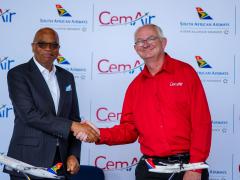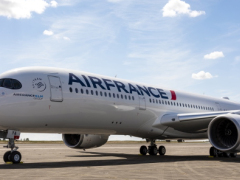A new draft proposal by the Department of Transport (DoT) could restrict foreign airlines from operating stopover flights between domestic points, potentially affecting tourism and raising airfares, say experts.
In its Draft Comprehensive Civil Aviation Policy, published on May 23, the DoT stated: “Stopover rights have the potential to negatively impact the South African domestic market where passengers that could be carried by South African airlines between domestic points are lost to foreign airlines through the exercise of these rights.”
A step backwards
But aviation economist and chartered accountant, Joachim Vermooten, says the Department’s assumptions are flawed, and warned that implementing such a policy would worsen the passenger experience and increase travel costs.
“For passengers currently using these flights, it would mean higher airfares – the fare of the foreign airline plus the fare charged by a domestic airline. It would also result in longer journeys from their source markets, which will entail intermediate customs clearance and rebooking of luggage and check-in on a separate flight by a domestic airline,” explained Vermooten.
He noted that the proposal was contrary to International Civil Aviation Organization standards that prioritised the passenger experience and required member states to make trips as short, affordable and convenient as possible.
“Direct flights would now have to operate via additional and unnecessary transit points, trips would be longer, and users will be exposed to additional risks of delay and prices will rise,” said Vermooten.
“In addition, the proposed policy measure would increase barriers to entry, constrain tourism to South Africa and reduce the traffic volumes through South African airports.”
BMA bemoans cabotage
The DoT also claimed that international passengers on a stopover in a domestic point in South Africa presented processing challenges for the Border Management Authority (BMA).
However, Vermooten said this was also incorrect.
“The BMA’s concerns and immigration issues would only arise if there was a mix of incoming international passengers, being flown from the first point of entry (where they do not disembark) to the second point of entry (where they do disembark and pass customs clearance), together with local passengers,” explained Vermooten.
However, he explained that the traffic rights under discussion did not amount to cabotage – when foreign airlines carry domestic passengers within a country – as cabotage was already explicitly prohibited under existing bilateral air services agreements.
Withdraw bilaterals?
Another section of draft policy reads: “Stopover rights already granted in bilateral air services arrangements should be withdrawn.”
Vermooten explained that if rights assigned by bilateral air services arrangements were unilaterally withdrawn, it would put South Africa under risk of international arbitration by ICAO.
“Bilateral air services arrangements are subject to the agreement by two states. If South Africa attempts to withdraw these rights, it will result in international arbitration by ICAO, increase barriers to entry and tourism and signify a serious reversal of the international trend of liberalisation which is promoted by ICAO as well as the Airlift Strategy and Airlift Plan.”
Closing skies
The policy further stipulates that South Africa will not negotiate open-skies agreements with non-African States.
“Open-skies agreements transfer the commercial decisions of the scope of capacity, frequency of flights and pricing to the airlines (subject to competition oversight), instead of restrictions imposed by the regulatory authorities. This implies more responsibility on airline management to achieve reasonable returns and sustainability,” said Vermooten.
While open skies agreements generally benefit tourism, airports and international connectivity for airports, Vermooten warned that if limitations on capacity were implemented, it would restrict supply, increase prices, and not ensure profitability for airlines that required protection.
“The proposal is regressive and not in the interest of developing tourism, international connectivity or traffic volumes through airports in South Africa,” said Vermooten.













